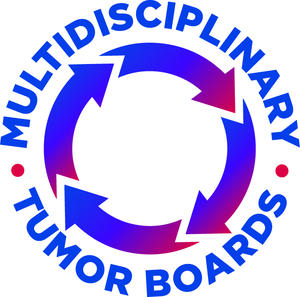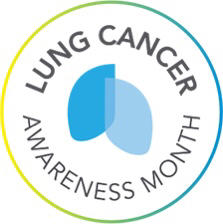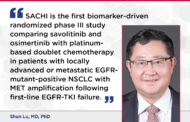One of the pillars of organ-specific tumor centers certified by the German Cancer Society, such as lung, breast, and prostate cancer centers, is a weekly multidisciplinary tumor board (MTD). In our comprehensive cancer center (Center for Integrated Oncology Cologne; CIO), nearly all patients receiving first-line treatment and a substantial portion of patients whose disease has relapsed are being evaluated for optimal therapy options in such MTDs. We run a total of 18 weekly MTDs, with 11,500 recommendations annually representing the broad spectrum of cancer diseases treated in 25 certified organ-specific cancer centers under the umbrella of the CIO. These MTDs undergo an annual inspection by external expert review through the German Cancer Society, including a review of the percentage of discussed patients, completeness of reports, and participation of all disciplines. Specialists from all involved disciplines are required to participate in the MTD. For example, in the MTD of our certified lung cancer center, physical attendance of a board-certified thoracic surgeon, pulmonologist, medical oncologist, radiotherapist, radiologist, pathologist, psycho-oncologist, and palliative care specialist as well as of an oncology-trained nurse, a case manager, and a social manager is mandatory and documented for inspection by the certification board. Thereby, the MTD not only elaborates on an individualized therapy plan, but it also prepares all further rehabilitation and therapy measurements after hospitalization.

In case resection of a lung cancer is possible, every tumor case is discussed twice—pre- and post-surgically—to elaborate a multidisciplinary therapy plan, which is sent to all MTD participants, the referring physician, and the office-based oncologist who will complete the adjuvant or further definitive or palliative cancer care. In the event the subsequent therapy plan is changed, the MTD holds a third meeting to review the changes and adapt a “deviation” protocol.
A key element of the preoperative board meeting is reviewing all histopathology and imaging data in order to assess and decide on a possible tumor resection. Again, reviewing histopathology and imaging data is mandatory for the planning of postsurgical adjuvant therapy. Also, constant review of the original data provides transdisciplinary knowledge transfer. For example, the pathologist will have a clear understanding when he or she diagnoses a lesion that the radiologist classifies as spiculated, and the oncologist will eventually have a deep understanding of the consequences of molecular changes and their therapeutic relevance. Furthermore, cases of emerging resistance to targeted or immune therapies and subsequent tumor progress will be re-reviewed and reanalyzed for further therapeutic options. Selected cases that have received all currently approved therapy options are discussed in a Molecular Tumor Board, with the intent to allocate them to further translational studies or individualized therapies. These cases usually have undergone whole-exome sequencing. Finally, MTDs are a key hub for selecting patients for clinical trial recruitment. Thus, MTDs have a deep educational effect, and all participants develop an understanding of the efficacy and limitations of personalized therapies. All diagnostic, therapeutic, and clinical follow-up data are carefully documented, and hence, the certified lung cancer center as well as the certifying board are able to compare treatment and outcome data with all other certified centers on a nation-wide scale.

In case surgery is not possible, the pathologist will review all molecular data. In our center, all patients undergo upfront broad molecular next-generation sequencing–based testing for all therapeutically relevant genetic aberrations, with the possible consequence of therapy with approved drugs, clinical trial participation, or off-label drug use—approximately 10% of patients participate in clinical trials or off-label drug use. If in the first-line treatment decision situation there is an urgent medical need, fast-track testing may be ordered by the medical oncologist, comprising oncogenic aberrations in EGFR, ALK, ROS1, MET and BRAF as well as PD-L1 testing. In order to provide molecular data in a timely fashion, we have established the policy that every biopsy leading to a new lung cancer diagnosis triggers immediate molecular testing by the pathologist and every re-biopsy triggers immediate molecular analysis for resistance mechanisms. Thus, a bimodal test strategy for fast-track analyses—a more comprehensive DNA panel for mutation testing and a multiplex RNA sequencing panel for gene fusion testing—has been developed and carefully reviewed by the MTD. As we believe that molecular information of tumor vulnerabilities should be integrated in the day-to-day therapeutic board decisions and that the literacy of physicians regarding molecular medicine is mandatory for all cancer therapies, we do not run a separate molecular lung cancer board for most cases and review only selected cases with rare findings in a specialized Molecular Tumor Board. Medical oncologists together with medical pathologists lead the discussions on the interpretation of next-generation sequencing, and in complex cases, basic scientists from genome research also become involved. Over the years, the certified lung cancer center in the CIO and its core molecular test platform, the national Network Genomic Medicine, have not only provided key outcome data on the efficacy of lung cancer precision medicine but have also brought much insight into the prognostic and predictive value of several genomic alterations and their dependence on co-occurring mutations.1-6
References:
1. Clinical Lung Cancer Genome Project; Network Genomic Medicine. A genomics-based classification of human lung tumors. Sci Transl Med. 2013;5(209):209ra153.
2. Kron A, Alidousty C, Scheffler M, Merkelbach-Bruse S, Seidel D, Riedel R, et al. Impact of TP53 mutation status on systemic treatment outcome in ALK-rearranged non-small-cell lung cancer. Ann Oncol. 2018;29(10):2068-2075.
3. Scheffler M, Schultheis A, Teixido C, Michels S, Morales-Espinosa D, Viteri S, et al. ROS1 rearrangements in lung adenocarcinoma: prognostic impact, therapeutic options and genetic variability. Oncotarget. 2015;6(12):10577-10585.
4. Michels S, Scheel AH, Scheffler M, Schultheis AM, Gautschi O, Aebersold F, et al. Clinicopathological characteristics of RET rearranged lung cancer in European patients. J Thorac Oncol. 2016;11(1):122-127.
5. Alidousty C, Baar T, Martelotto LG, Heydt C, Wagener S, Fassunke J, et al. Genetic instability and recurrent MYC amplification in ALK-translocated NSCLC: a central role of TP53 mutations. J Pathol. 2018;246(1):67-76.
6. Fassunke J, Muller F, Keul M, Michels S, Dammert MA, Schmitt A, et al. Overcoming EGFR(G724S)-mediated osimertinib resistance through unique binding characteristics of second-generation EGFR inhibitors. Nat Commun. 2018;9(1):4655.
Both Dr. Wolf and Dr. Büttner serve as Speakers for the national Network Genomic Medicine (nNGM) in Germany.






